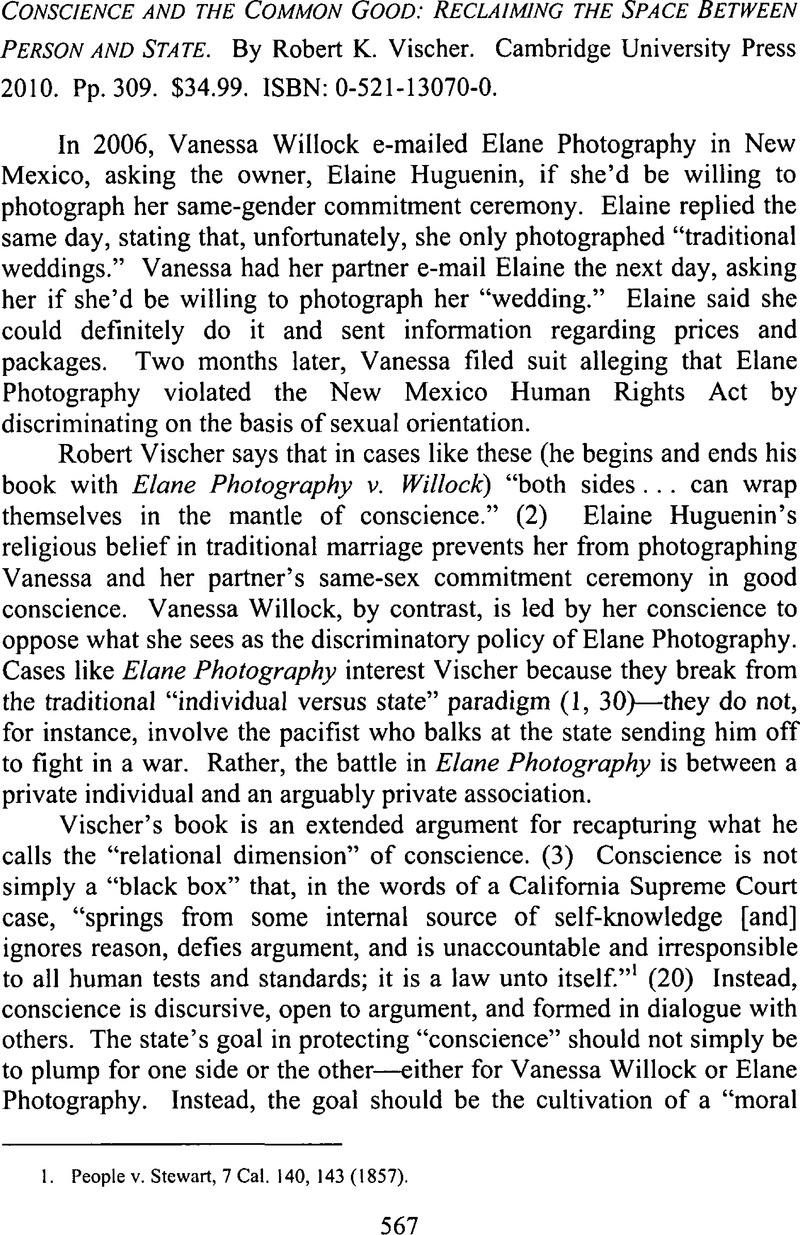Published online by Cambridge University Press: 25 September 2015

1. People v. Stewart, 7 Cal. 140, 143 (1857).
2. Kathleen A. Brady has made a similar argument with a special focus on the formation of religious beliefs in Brady, Kathleen A., Religious Organizations and Free Exercise: The Surprising Lessons of Smith, 2004 B.Y.U. L. Rev. 1633Google Scholar.
3. One example that sticks out is Vischer's citation (at 67) of Timothy Macklem for Bernard Williams's famous thought experiment of Jim and the Indians from Williams, Bernard, A Critique of Utilitarianism, in Utilitarianism: For and Against 98 (Smart, J.J.C. & Williams, Bernard eds., Cambridge Univ. Press 1973)Google Scholar. Surely the book is not hard to find, nor does Macklem aid us in understanding Williams's point.
4. This is the conception of conscience that appears, for instance, in the sermons of Joseph Butler. See Butler, Joseph, Five Sermons 41, 43 (Darwall, Stephen ed., Hackett Publg. Co. Inc. 1983)Google Scholar; see also Darwall, Stephen, The British Moralists and the Internal “Ought”: 1640-1740, at 277 (Cambridge Univ. Press 1995)CrossRefGoogle Scholar.
5. Finnis, John, Natural Law and Natural Rights 125 (Oxford Univ. Press 1980)Google Scholar; id. at 133 (tracing this view to Aquinas).
6. One difficulty here, though, is that it is likely the parents, not the student, will do the choosing. This may be in some tension with Vischer's reluctance to give parents a “trump card” over which values their children should be exposed to. (225).
7. “School choice” is yet another area where Vischer's likely policy preference lines up nearly perfectly with his suggested reform.
8. Vanessa Willock won her suit, although an appeal is pending. The New Mexico court ultimately ruled that Elane Photography was not protected by the state's Religious Freedom Restoration Act, because it was not a “person” under the Act. Elane Photography, LLC v. Willock, CV-2008-06632 (Dec. 11, 2009). This seems to me a rather serious misreading of the statute.